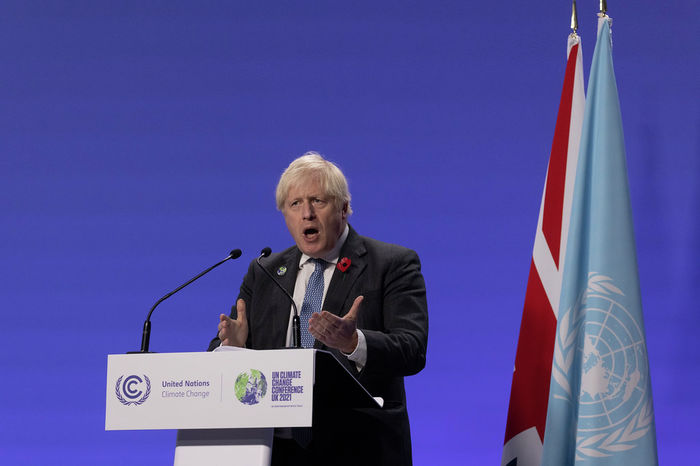To the uninitiated, news about cryptocurrencies, NFTs, or other ‘blockchain’ technologies tends to produce two reactions: ‘this sounds complicated’, and ‘this sounds silly’. When mainstream news articles aren’t trying and failing to explain what the blockchain is or how ownership of NFTs works, they’re discussing asset bubbles and internet nerds trying to flaunt manufactured status with ugly jpegs.
There is certainly something silly to much of the culture around crypto: if you’re anything like me, every time you see an ape NFT profile picture you cringe in a way you never before thought possible. But behind the silliness, the memes, and the Elon Musk tweets, there is a serious philosophy of crypto that is worth learning about.
How did cryptocurrency become valuable?
Bitcoin, the first cryptocurrency, emerged out of two connected developments: first, the very admirable technical achievements that led to the development of blockchain technology; second, the re-emergence of so-called ‘goldbugs’ like Ron Paul after the 2008 financial crash. These fringe thinkers believed that fiat currencies like the dollar, backed only by the centralised authority of the state, were inherently unstable and called for a return to the gold standard, buying up gold in the meantime. But with the development of the blockchain, many influenced by these arguments started looking towards Bitcoin as a form of decentralised money that could eventually replace, or even hasten the demise of, fiat currency.
“The goal is to smash Big Tech monopolies by giving people ownership of their data and other digital goods in the form of NFTs”
This exact story is less widespread nowadays, but as Noah Smith has argued, Bitcoin remains a possible replacement for gold. Today’s enthusiasts do not universally agree that Bitcoin could become a replacement for the dollar, or even a serious currency used seamlessly in economic exchange. But they still see owning Bitcoin as a hedge against the possibility of a financial meltdown or government collapse—a technology that can financially insulate people from catastrophic system failure.
Political change and NFTs: new ways of thinking about developments in crypto
In the meantime, new developments in crypto technology—especially Ethereum—produced corresponding developments in crypto philosophy. Currently, the central crypto ideal is ‘Web3’, an attempt to build a new, more decentralised internet. The goal is to smash Big Tech monopolies by giving people ownership of their data and other digital goods in the form of NFTs (‘non-fungible tokens’), which they can then exchange for cryptocurrencies and in turn other digital goods (advertising, music, TV shows, the various services of social media) without intermediation from Google, Spotify, Netflix, or Facebook.
Even more radically, some have taken crypto’s ostensible anti-monopoly potential to support the idea of blockchain-based political change in the offline world. This includes experimental attempts to implement a universal basic income through cryptocurrencies, but goes beyond that; recently, plans have been outlined for ‘crypto cities’, involving ‘new and experimental forms’ of land ownership and local democracy, governed by the rules of blockchain-based ‘DAOs’.
“Regulating crypto signals society’s commitment to opposing risky bets that could challenge the status quo”
A lot of this sounds pretty … weird. And that’s largely because it is pretty weird. Indeed, crypto enthusiasts have faced some significant and convincing criticism from sceptics. First of all, the philosophy of Bitcoin (and to a lesser degree other crypto technologies) is said to rely on misguided economic assumptions, especially those inherited from early adopters. After that, critics have pointed out the significant environmental costs of crypto. There’s also the point that, despite the ideal that crypto would be a radical alternative to existing systems, much of its development has taken the form of building its own versions of traditional financial institutions. Finally, it is argued that crypto enthusiasts wrongly think political problems are fundamentally about technology, as opposed to concentrated power—which new technology will not necessarily undermine, and may in fact reinforce.
The necessary risk of crypto technology
For all these reasons and more, more and more people have turned against crypto, and as a result, more and more countries are considering serious regulation that could threaten the future of the technology—at the extreme, effectively regulating it out of existence, at least in its more ambitious forms. But while I am personally a crypto sceptic, I think it is clear that this would be a huge mistake.
Crypto is a big, risky bet on changing the world that will be huge if it pays off but which also has significant downsides. Regulating crypto out of existence insulates us against those downsides, but it also signals society’s commitment to opposing risky bets that could challenge the status quo. This is nothing new: since the 1970s, innovation in the West has been stagnating, precisely because of a bureaucratic political culture that has become paralysed by downside risks and mired in ‘precautionary principles’. Growth has slowed and inequality has soared, in no small part due to housing crises caused by opposition to new developments in favour of ‘preserving existing communities’. Throughout Western society, thinking big and taking risks has been discouraged by a thousand social and cultural ‘veto points’.
Among all this, the philosophy of crypto—radical, innovative, weird—stands out as a genuinely new innovation; despite being probably wrong and even a bit silly, it is a big bet on the possibility of a radically different future. Our governments killing its potential would also kill any chance that someone else gets inspired by crypto to think big; potential innovators would receive the signal, loud and clear, that this is a society opposed to risky bets and committed to discouraging people from ever challenging the status quo. That would be a huge loss. We need to think big and embrace risky ideas—if only because the risks of not doing so are even bigger.
After all, we are coming out of a once-in-a-century pandemic with worse public health prospects than when it started. Democracy and political freedom are under threat across the world. We are faced with the rise of a new authoritarian superpower that has no regard for human rights and is committing genocide at this very moment. And this is all without mentioning climate change, a looming, dooming, potentially existential problem where current proposals and attempted solutions have gotten almost nowhere across decades. None of the ‘obvious’ solutions to these challenges have borne fruit (writing op-eds in the New York Times about the importance of liberal norms didn’t ever stop Trump). And so we desperately need new ideas, which will necessarily be risky and uncertain; for without them, things can only get worse.
To be clear, any big bet that could transform society will have downside; crypto certainly does, especially in its environmental impact. But we need to be willing to take these risks. The innovation, political as much as technological, that we need to tackle our mounting crises isn’t going to come from nowhere; it needs people willing to attempt big experiments and a society that will enable them to do so. After all, we humans are famously bad at predicting what we need until someone takes a risk and starts providing it. The cost of being unwilling to make big bets on the future of society is so much larger than the downsides could ever be; at best, stagnation and decline, and at worst, existential catastrophe.
Crypto cannot solve climate change; indeed, if you are a sceptic like me, it’s unlikely to solve very much at all. But opposition to crypto from governments and wider society sends a signal that goes beyond crypto. It tells people that radical experiments will be fought against, and your life will be made difficult if you try them; that only hedge fund managers are allowed to think high-risk high-reward; that our society has adopted the ‘cheems mindset’. If that is where we have ended up, then we will never create the dynamism we need to tackle our biggest problems. Embracing crypto, despite the risks, is one way to encourage it.


